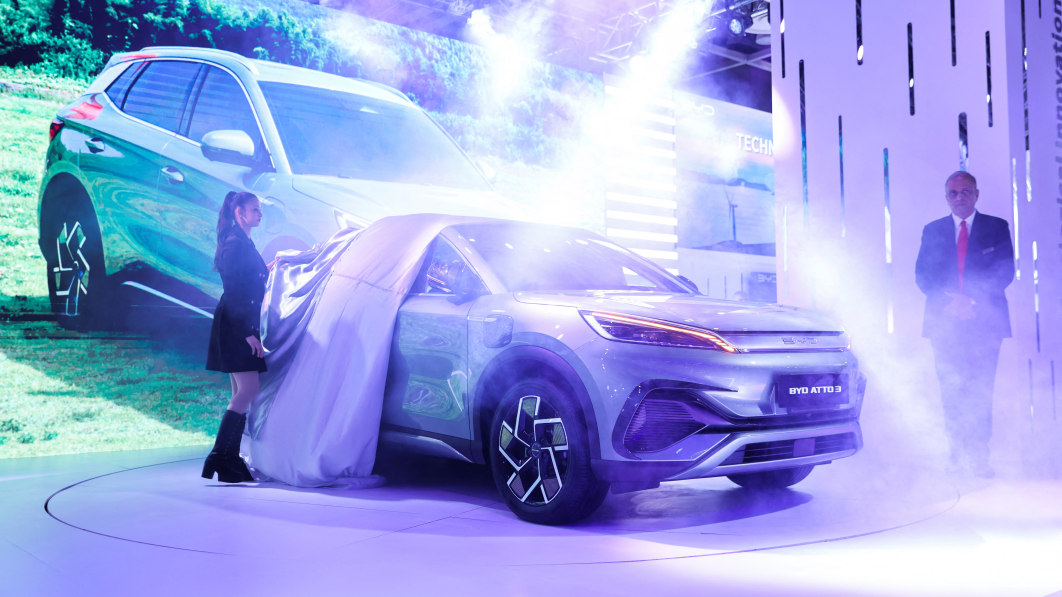NEW DELHI – China’s BYD has informed its India joint-venture partner that it will put on hold its plans for a new $1-billion investment to build electric cars after facing scrutiny from New Delhi, according to two sources familiar with the discussions.
BYD and its partner, privately held Megha Engineering and Infrastructures, submitted a proposal to the Indian government in April to jointly construct electric cars in India, as reported by Reuters earlier this month.
However, during the initial review, officials from three Indian ministries, including finance and external affairs, raised security concerns about the investment from the Chinese company and expressed opposition, according to two Indian officials.
Last week, BYD executives informed Megha Engineering that they wanted to abandon the pursuit of the investment, as per the two sources with knowledge of the exchange.
It is unclear whether BYD may reconsider, and as of Thursday, BYD had not officially withdrawn the investment proposal from government review, said the two officials familiar with the review.
BYD, China’s largest electric vehicle (EV) manufacturer, declined to comment on the current status of its investment proposal and whether it would withdraw the plan to produce electric cars in India.
In a statement to Reuters, the company mentioned that it has been present in India for 16 years, selling both passenger cars and electric-drive buses.
India’s finance, external affairs, and home ministry did not respond to an email seeking comment. Megha Engineering did not provide any comment.
During a meeting last week, Hyderabad-based Megha Engineering urged BYD to wait for more clarity on the situation before deciding to drop the plan to manufacture electric cars, according to the two sources acquainted with the discussion.
BYD anticipated that its investment proposal would face political opposition due to the scrutiny of Chinese investment in India and had attempted to address these concerns, according to the two sources familiar with its planning.
For instance, the proposal stated that voice-activated commands for apps would be available in Indian languages in BYD electric cars built in India, and all data from the vehicles would be stored in India, said one of the sources.
BYD had proposed commencing production in India by 2025, added the sources familiar with the plan.
India intensified scrutiny of Chinese investment in 2020 following a series of border conflicts between the two countries.
China’s Great Wall Motor also abandoned its plans to invest $1 billion after failing to secure clearances from the Indian government.
The final decision on whether to approve BYD’s investment proposal will be made by the Indian ministries of trade and heavy industries.
BYD, the world’s largest producer of EVs and plug-in hybrid vehicles, entered the Indian market in 2007 by manufacturing batteries and components for mobile phone makers.
In 2013, it established a joint venture company called Olectra Greentech with Megha Engineering to produce electric buses in India.
BYD, which has already invested over $200 million in India, currently sells the Atto 3 electric SUV and the e6 EV to corporate fleets, and plans to launch sales of its Seal electric sedan later this year.
According to government registration data, BYD has sold approximately 1,950 cars in India since starting sales in 2022.
India’s EV market is still small but growing, with domestic automaker Tata Motors dominating sales. Electric models accounted for less than 2% of total car sales in 2022, but the government aims to increase this to 30% by 2030.
(Additional reporting by Aditi Shah in New Delhi and Zoey Zhang in Shanghai; Editing by Kevin Krolicki & Simon Cameron-Moore)

